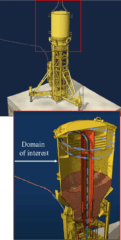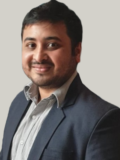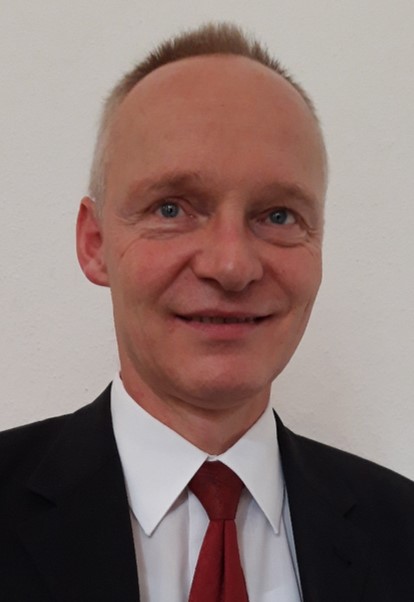Deep Sea Sampling research project aims to develop sustainable and minimally invasive technologies for the extraction of valuable minerals from the deep-sea floor. Targeting seafloor massive sulphide (SMS) deposits found at depths of 2000–4000 m, the project utilizes a trench cutter–based excavation system equipped with counter-rotating milling wheels that recover seabed material from a confined zone using a pump leading to a hydrocyclone based containment unit. Within this system, a hydrocyclone and multi-stage filtration assembly separate mineral particles from the carrier fluid before the clarified water is returned to the seabed. The hydrocyclone module is then lifted to the vessel for material recovery and redeployed to the ocean floor. This return flow is essential to prevent turbidity plumes and maintain a closed hydraulic circuit without discharging sediment-laden water to the ocean surface. The thesis work will focus on analysis of pressure losses and particle separation efficiency inside the hydrocyclone under varying inlet velocities, solid loadings, and operating conditions, as well as to evaluate filter-induced pressure drops and clogging tendencies.The aim is to minimise plume dispersion to avoid disturbance to the fragile submarine ecosystem.
Tasks:
- CFD analysis the of flow and material transport.
- Analysis of separation and sedimentation process.
- Multiphase simulations using CFD–DEM on GPGPUs.
- Design optimization based on operating conditions.
- Validation and comparison of results from in-house test bench.
- Post-processing results and technical reporting.
Requirements:
- Strong background in Fluid Mechanics, CFD, Multiphase Flow.
- Experience with CAD and CFD software (preferably Star-CCM+).
- Basic knowledge of DEM modelling.
- Programming and scripting skills in C++ or Python, Java (macros).
- Good communication skills in English (German advantageous).
- Self-motivated and capable of independent research work.
What We Offer:
- Interdisciplinary research environment bridging industry and academia.
- Hands-on experience and training on industrial CFD software (Star-CCM+).
- Opportunity to contribute to research initiative on sustainable
deep-sea mining.
Beginn: ab sofort
Supervisors:
Prof. Dr. habil. Andreas Wierschem
Room: Room 0.222
- Phone number: +49 9131 85-29566
- Email: andreas.wierschem@fau.de



